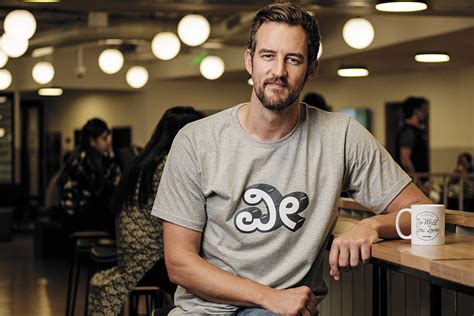A Quote by Miguel McKelvey
People need a space that they can go to make a conference or Skype call. It's important to create those spaces and create a company culture that supports those spaces.
Related Quotes
Spaces of liberation are, in a certain way, some kind of social spaces where people can not only get together and think about something else, but also act together. If you are thinking about an elemental solidarity, you are thinking about people acting together and taking decisions together, and thereby beginning to think about what sort of society they want to create. So, there is a need for liberated spaces; that is really difficult.
Web publishing can create common spaces; it all depends on how we, the readers and sometimes the producers, react to technological change. If we sort ourselves into narrow groups, common spaces will be in big trouble. But there's no reason not to have common spaces on the Internet. There are lots of them out there.
Architecture is inherently a totalitarian activity. One thing we hate about it is that when you design a space, you're probably designing people's behavior in that space. I don't know if we know how to change that, but our goal is to make spaces for people rather than people being subservient to spaces.
I've always been interested in queerness and underground and fringe and periphery, and who and what flourishes in those spaces. Those spaces that are darker and dingier and more dangerous, more lonely. What comes out of there, to me, is the life force. I'm excited when the center reaches over to those places and pulls inspiration from them, and translates it for a lot of people.
Most of the time, when you need something at a company, you make it. If you want to sell a product, you create it. If you need a head of marketing, you hire one. If you want to create a great company culture, what do you do? The lack of a clear answer on this is why I believe most companies don't have a great culture.



































